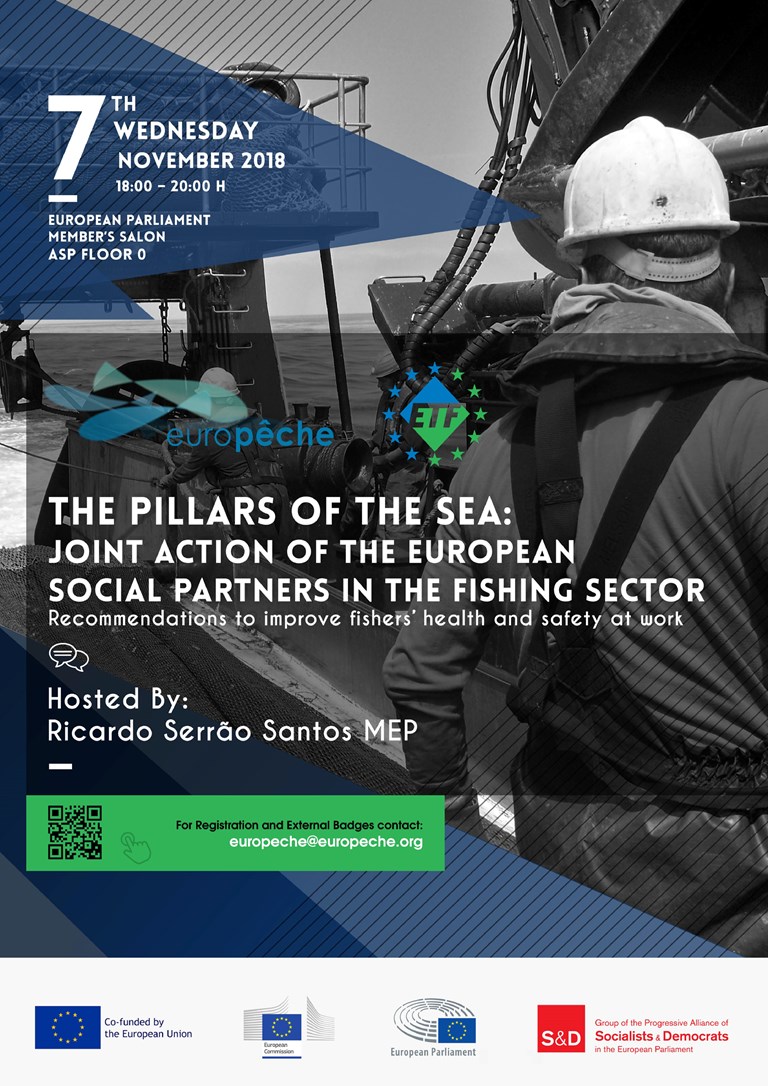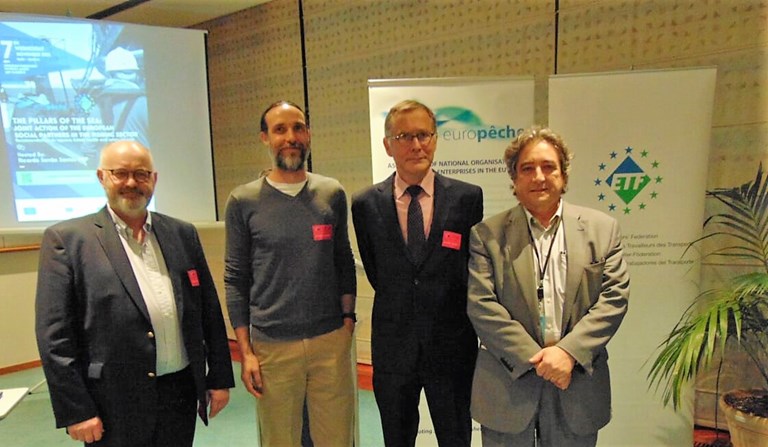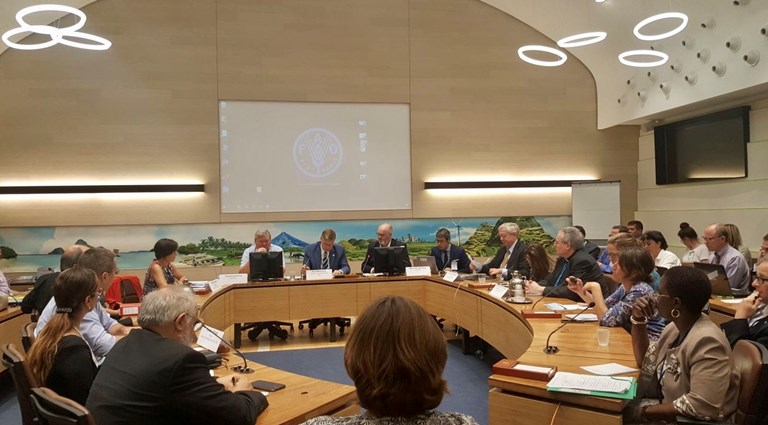Project Pillars of the Sea
The project as a whole, consists in partially implementing the work programme of the Sectoral Social Dialogue Committee for Sea Fishing in order to significantly make progress in various key areas of interest for Social Partners. The main issues covered by the project are mainly dealing with how to improve health, working conditions and safety at sea of our fishermen.
In this context, the European Social Partners have produced three different studies with the aim to contribute to ameliorate EU legislation regarding training, safety, accommodation, business efficiency and free movement of workers which will ultimately offer to our fishermen a healthier working environment, better skills and decent work.
Pillar 1: Constitutes the aim to implement the STCW-F Convention in the EU through a Social Partners' Agreement, as the lack of a common standard for the training and certification of fishers in the EU is a safety risk.
Training and certification of fishermen

Training and certification of fishermen
Formation et délivrance de brevets pour les pêcheurs

Formation et délivrance de brevets pour les pêcheurs
Formación y titulación de los pescadores

Formación y titulación de los pescadores
Pillar 2: Contains an analysis of the EU rule limiting increase in fishing capacity by imposing ceilings on gross tonnage and propulsion power. The outputs are a paper on the impact of the ceiling on working and living conditions and fishing vessel safety and productivity of the enterprises, as well as proposals and recommendations for possible solutions.
Analysis on Gross Tonnage and Propulsion Power ceilings

Analysis on Gross Tonnage and Propulsion Power ceilings
Analyse relative au plafonnement du tonnage brut et de la puissance de propulsion

Analyse relative au plafonnement du tonnage brut et de la puissance de propulsion
Análisis de los límites máximos de arqueo bruto y potencia de propulsión

Análisis de los límites máximos de arqueo bruto y potencia de propulsión
Pillar 3: Consist of a survey on the legislation in force in the EU regarding deck machinery. The results are recommendations for possible standardization of the rules in terms of commercialization, installation and safe use on board of fishing vessels.
Safety of fixed machinery installed on board fishing vessels

Safety of fixed machinery installed on board fishing vessels
De la sécurité des machines fixes installées à bord des navires

De la sécurité des machines fixes installées à bord des navires
Seguridad de las máquinas fijas instaladas a bordo de los buques de pesca

Seguridad de las máquinas fijas instaladas a bordo de los buques de pesca
synthese_ergospace_eng

synthese_ergospace_eng

News

The project as a whole, consists in partially implementing the work programme of the Sectoral Social Dialogue Committee for Sea Fishing in order to significantly make progress in various key areas of interest for Social Partners. The main issues covered by the project are mainly dealing with how to improve health, working conditions and safety at sea of our fishermen.

We co-hosted an event with our social partner for fisheries and an MEP. We presented our legal proposals for a safer, healthier and more worker-friendly fisheries sector in Europe.

The European Social Partners in the Fisheries Sector were proud to host today together with the Kingdom of the Netherlands, the European Commission and the Holy See, a side-event on the social dimension of fisheries during the 33rd session of the Committee on Fisheries (COFI), a subsidiary body of the Food and Agriculture Organization (FAO). Despite the progress in health and safety operations, insufficient attention has been given by governments to the implementation of essential principles of international law for the protection of fishers, making fishing still a hazardous activity. In order to bridge the gap, participants widely called for the development, in close cooperation with UN agencies, of an effective roadmap for the rapid worldwide implementation of the international agreements relating to work and safety in the fishing sector.